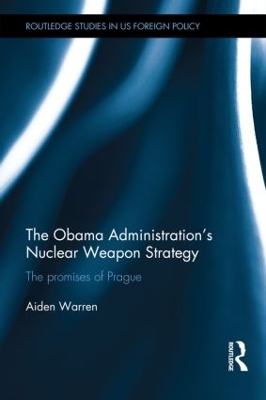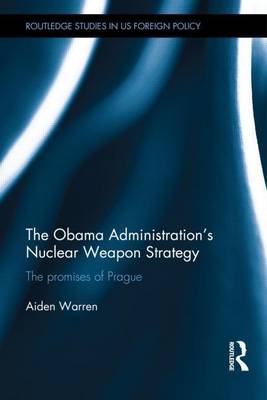Routledge Studies in US Foreign Policy
3 total works
This book comprehensively outlines and evaluates the key U.S. presidential doctrines from Washington to Truman, through to the Bush and Obama administrations.
American foreign policy has long been caught between conflicting desires to influence world affairs, yet at the same avoid becoming entangled in the burdensome conflicts and damaging rivalries of other states. With the term `doctrine' seemingly (re)attaining charged prominence in the early 21st Century and, more recently, in regard to the many contested debates surrounding Obama's very own `set of guidelines,' the book will argue that the doctrinal thrust in articulating the United States' foreign policy direction has long embodied the desire to maintain the `balance of influence' in meeting its core interests. Notwithstanding the marked variations between U.S. administrations over the centuries, it is evident that in most instances presidential doctrines have articulated both the responses and directions conducive to an international order that best advances America; a composition encompassing democratic states, open-free markets, self-determining states that adhere to U.S. principles, and a secure global environment in which U.S. goals can be pursued (ideally) unimpeded. In navigating and assessing the key presidential doctrines, the book incorporates in its assessment both the individual and defining transitional themes American presidents have embodied in their respective doctrines in attempting to meet such national interest goals. These include: de-entanglement, securing the region, manifest destiny, containment, liberation, interventionism, engagement, pre-emption/prevention, and concluding with the `pragmatic realist' doctrine of the Obama administration.
Offering a comprehensive analysis of the past and present status of the U.S. presidential doctrine, this volume will be of great interest to scholars and students of American foreign policy, American history, security studies and international relations.
This book comprehensively outlines and evaluates the key Obama nuclear weapons policies, developments and initiatives from 2008-2012. Beginning with the administration's vision and goals posited in the 2009 Prague Speech and reaffirmed in the National Security Strategy of 2010, the book assesses the congressionally mandated Nuclear Posture Review, the New START Treaty, the pursuit of Comprehensive Nuclear-Test-Ban Treaty ratification, the Proliferation Security Initiative, the Fissile Material Cut-off Treaty, the Nuclear Non-Proliferation Review Conference, the Global Nuclear Security Summit - and the extent to which Obama, in the context of such initiatives, has actually upheld the lofty goals posited in Prague and differentiated himself from the nuclear path pursued by the Bush Administration. Additionally, the book evaluates the Obama Administration's dealings with other states in the context of its nuclear weapons policy - in particular, North Korea, Iran, Pakistan, Israel, India, and China.
Offering a comprehensive analysis of the current status of the US nuclear weapons strategy, this volume will be of great interest to scholars and students of American foreign policy, security studies and international relations.


